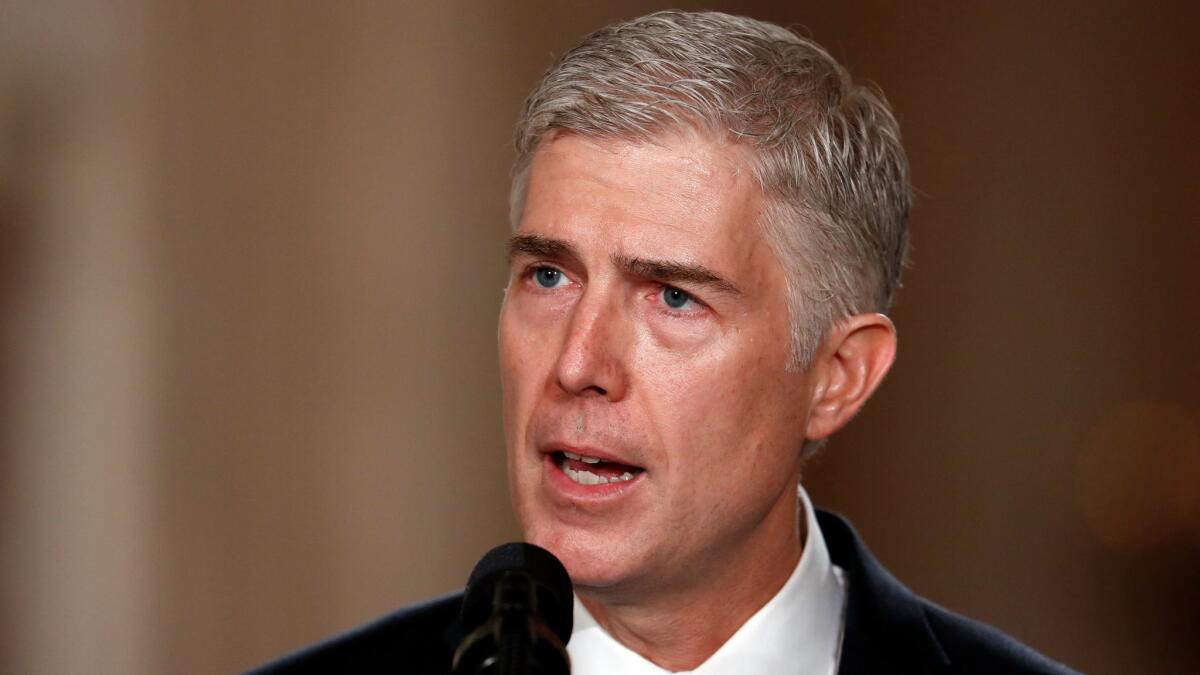Opinion: The myth that is Neil Gorsuch’s ‘originalism’

- Share via
To the editor: The best refutation of the myth of “originalism” being espoused by Supreme Court nominee Neil Gorsuch was explained by the late Justice William Brennan. He pointed out that trying to “find legitimacy in fidelity” to the intentions of the framers of the U.S. Constitution was “little more than arrogance cloaked as humility.” (“Is the Scalia theory embraced by Judge Gorsuch a lofty constitutional doctrine or just an excuse to be conservative?” March 17)
“It is arrogant,” Brennan said, “to pretend that from our vantage we can gauge accurately the intent of the framers on application of principle to specific, contemporary questions.” For him, the Constitution had no “static meaning it might have had in a world that is dead and gone, but in the adaptability of its great principles to cope with current problems and current needs.”
To defend and protect the Constitution, we need justices on the court today like Brennan and Stephen G. Breyer, who believes “the court should regard the Constitution as containing unwavering values that must be applied flexibly to ever-changing circumstances.”
Stephen F. Rohde, Los Angeles
The writer is a constitutional lawyer and a former president of the ACLU of Southern California.
..
To the editor: Even the framers were not originalists. They certainly did not believe that the Constitution should be interpreted throughout the centuries according to the meaning as they understood it. That’s precisely why they allowed for amendments.
Thomas Jefferson would beg to differ with Gorsuch’s assessment of a rigid, inflexible document that Gorsuch presumes our Constitution to be. He believed that the law must advance to keep pace with the times, as we become more enlightened and new truths are discovered.
To say that Gorsuch is stuck in the past would be doing an injustice to Jefferson.
Jill Chapin, Santa Monica
..
To the editor: When the Constitution was first written, the framers did not explicitly give the Supreme Court the right to review the constitutionality of a law. This right was established only later, in the case of Marbury vs. Madison, and was considered by many to be a broad overreach of the authority of the court.
It seems to me that a true originalist would have to recuse himself from any case that decided a constitutional issue, simply because it was not the framers’ intent that such an issue be decided by the court.
David Weisenberg, Altadena
Follow the Opinion section on Twitter @latimesopinion and Facebook
More to Read
A cure for the common opinion
Get thought-provoking perspectives with our weekly newsletter.
You may occasionally receive promotional content from the Los Angeles Times.









